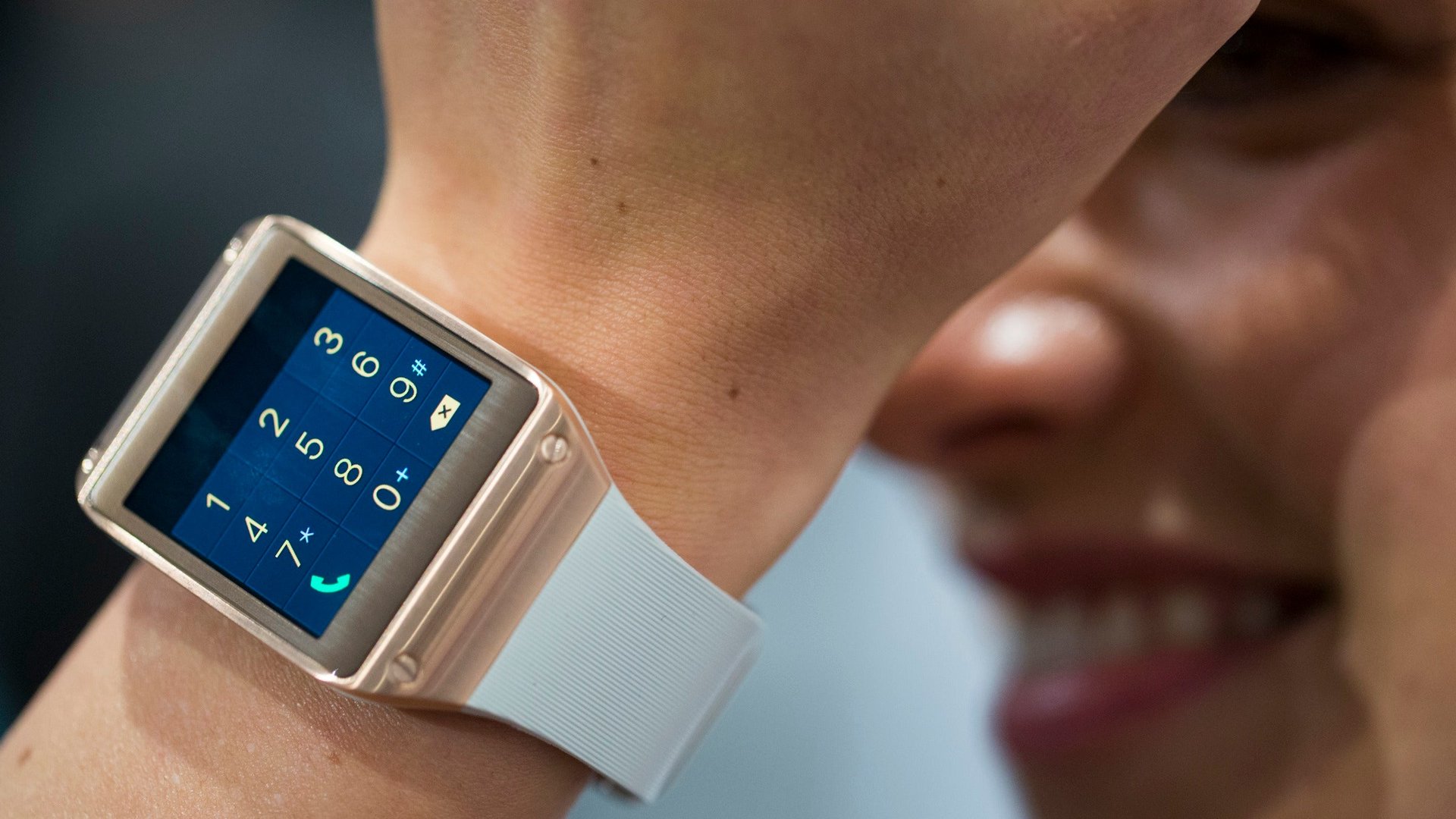2014 will be the year you actually want a smart watch
Part 3 in a series.


Part 3 in a series.
2014 will probably be the year of the smart watch. Apple is expected to unveil one, which might do better than the disappointments from Samsung and Sony. Google will come out with one too (paywall), reports the Wall Street Journal. It could be unlike any other on the market, with a unique two-mode display that is both reflective like e-paper and backlit like an LCD display. Google’s watch may function essentially as a one-inch (2.5 cm) square computer that could be used in a number of settings, not just on your wrist.
Meanwhile, in the health, fitness and life-tracking arena, popular wristbands like the Fitbit, Jawbone’s Up and the Nike Fuelband will be joined by an avalanche of competitors. One of the most interesting is the Basis fitness tracker, which adds so many sensors that it can track heart rate and caloric consumption as well as general activity.
At the same time, the makers of the pioneering Pebble smartwatch have demonstrated something interesting: It’s possible to turn a device widely dismissed as a dud at launch into one that more and more reviewers are finding genuinely useful merely by dint of software upgrades. One big improvement involves the notifications system built into Apple’s iOS 7. Using this system as a common language, any app on an iPhone can now push data—text or graphics—to the Pebble, as well as gather information from the Pebble’s sensors. The result is a plethora of new applications for Pebble, from remembering where you parked your Mercedes to alerting you minutes before it’s going to rain wherever you’re standing.
The watch could get even more powerful if, as suspected, Pebble announces on Jan. 6 the opening of its own app store, which has already been previewed for developers. In theory at least, that means developers can make money off apps for the device, which in turn makes it more useful and popular, which then encourages more developers. In that case, Pebble would get a leg up against much larger rivals like Sony and Samsung to take smart watches mainstream.
Eric Migicovsky, founder of Pebble, claims that it will supplement the smartphone by “becoming contextually the most appropriate tool for whatever you’re doing, whenever you’re doing it.” It’s a good characterization of what future smart watches will all strive to do, focusing on “glanceability”—getting information from a watch just by looking at it rather than having to poke at it like a phone. If they’re useful enough, smart watches could lose the nerd stigma that they and other wearables currently have.
Part 4: In 2014 the next billion will access the mobile internet—at $20 a handset
Join Quartz technology, science and health editor Christopher Mims, Re/code co-executive editor Kara Swisher, and Wall Street Journal technology columnist Farhad Manjoo for a live video discussion on the year ahead in technology, this Wednesday January 8 at 1pm ET. The event will be hosted by Quartz editor-in-chief Kevin Delaney.
You can submit questions on Twitter with the hashtag #techin2014, on our Facebook page, on Google+ or through annotations on this article.